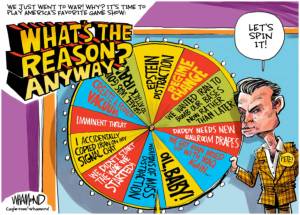Missions to the moon promise earthly benefits
Published 9:00 pm Thursday, July 19, 2007
If you’ve been around half a century or more, you might recall being glued to the television 38 years ago today. That’s when Neil Armstrong’s boots became the first to make an imprint on the moon.
The spectacle was surreal; the accomplishment almost beyond comprehension. In terms of scientific achievement, July 20, 1969 was one of humanity’s greatest days.
It also marked the climax of a national effort that inspired adults to dream and children to learn. In the midst of the Cold War, the U.S. space program became a rallying point, one that showed just how high we can reach when we truly commit to a goal.
That, as much as the many other benefits of scientific discovery, is why manned exploration beyond our own planet must continue. As a nation and as a species, we need to reach. Otherwise, we stagnate.
The space program long ago lost much of the nation’s imagination. The space shuttle’s gee-whiz factor rubbed off quickly; since its first mission in 1981, the program has gotten more attention from tragedy than triumph. The international space station has been a public-relations snoozer, too. The Mercury, Gemini and Apollo missions that led to the first moon landing captivated the nation – and sparked an interest in science, especially among young people – in a way that hasn’t been repeated since.
So NASA, at the behest of President Bush, is once again setting its sights on the moon, aiming to have astronauts go for extended visits by 2020. This exciting new page in human history is a truly global undertaking – more than a dozen nations, plus nongovernmental and commercial organizations from around the world, are already involved. This new generation of space pioneers includes experts from Australia, Canada, China, the European Space Agency, France, Germany, Great Britain, India, Italy, Japan, Russia, South Korea and Ukraine.
Talk about uniting for peaceful purposes. The first missions to the moon were the product of Cold War competition. The next will depend on global cooperation, strengthening existing partnerships and creating new ones.
Innovation will be another result. Establishing outposts on the moon where astronauts can stay and explore for perhaps months at a time will spark new technologies that benefit life on Earth and the global economy. Just getting back our “space legs,” which have atrophied since the demise of the Apollo program almost 35 years ago, will foster exciting advances.
Perhaps most important, though, is the spark new exploration and discovery will provide to the human imagination. It could use the boost.


